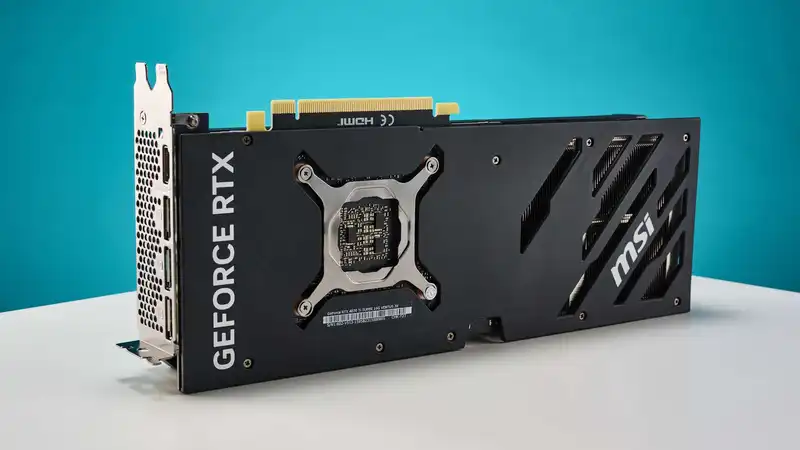UDN, one of Taiwan's leading financial news media outlets, claims that Nvidia is drastically reducing production of its high-end RTX 40 series graphics chips in preparation for the launch of the Blackwell-powered RTX 50 series. However, the production reduction is said to be as much as 50%, which will almost certainly drive up the price of RTX 4070, 4080, and 4090 graphics cards. [Because the design and development of new GPUs costs billions of dollars, when a new generation of processors comes out in a few months, companies like Nvidia will ease production of previous generation products to keep retailers' inventories from filling up with cheap old stock. pc graphics cards will exist That has been the case for as long as there have been PC graphics cards, so reports from Taiwan's UDN (via TweakTown) claiming that production of high-end RTX 40 series GPUs is being scaled back is not exactly headline news.
In this instance, however, UDN claims that the reduction in AD102, AD103, and AD104 chip production could be as much as 30% or 50%. The latter would have a noticeable impact on RTX graphics cards currently in stock.
The RTX 4070 and RTX 4080 did not sell well when they launched in April 2023 and November 2022, respectively, but Nvidia has shifted significant numbers recently. This is partly because high-end GPUs, even those designed for gaming, are being bought up to run small AI servers.
The price drop of the RTX 4070 with the introduction of the RTX 4070 Super and the complete replacement of the RTX 4080 with the cheaper 4080 Super also contributed to sales.
This means that it is still relatively difficult to find cards below MSRP, but if you know where to look, you can find great deals on GPUs. So demand remains high, and as availability decreases, prices will be driven up by third-party vendors.
The significant drop in production is almost certainly an indication that Nvidia is preparing to launch a Blackwell-powered RTX 50 series.
However, if the current RTX 40 series suffers a fairly significant price increase, PC gaming enthusiasts will probably hold off on purchasing new Nvidia cards until the RTX 50 series is released. If that happens, old inventory will not be well organized and retailers will be stuck trying to sell both the pricey previous generation models and the pricey new generation cards at the same time.
Hopefully, a common sense decision will be made: the RTX 5070 model will probably not be introduced until January 2025, so there is no need to significantly reduce the current RTX 4070 lineup. If the decrease in production can be limited to a 30% decrease, then perhaps no significant price increases or price hikes will occur at all.
Of course, this all assumes that AMD and Intel do not steal Nvidia's thunder by announcing their next generation GPUs, RDNA 4 and Battlemage, later this year. If they do and their prices are very competitive, Nvidia may be forced to lower the RTX 40 price to maintain market share.
I know this is all ifs, mights, and maybes-UDN is a reliable source of such information, but the range of manufacturing cuts is quite large, but at least one thing can be confirmed: Nvidia's RTX graphics cards are not suddenly become cheaper. On the other hand, let's hope they don't suddenly get cheaper.


Comments